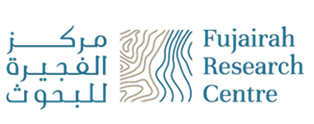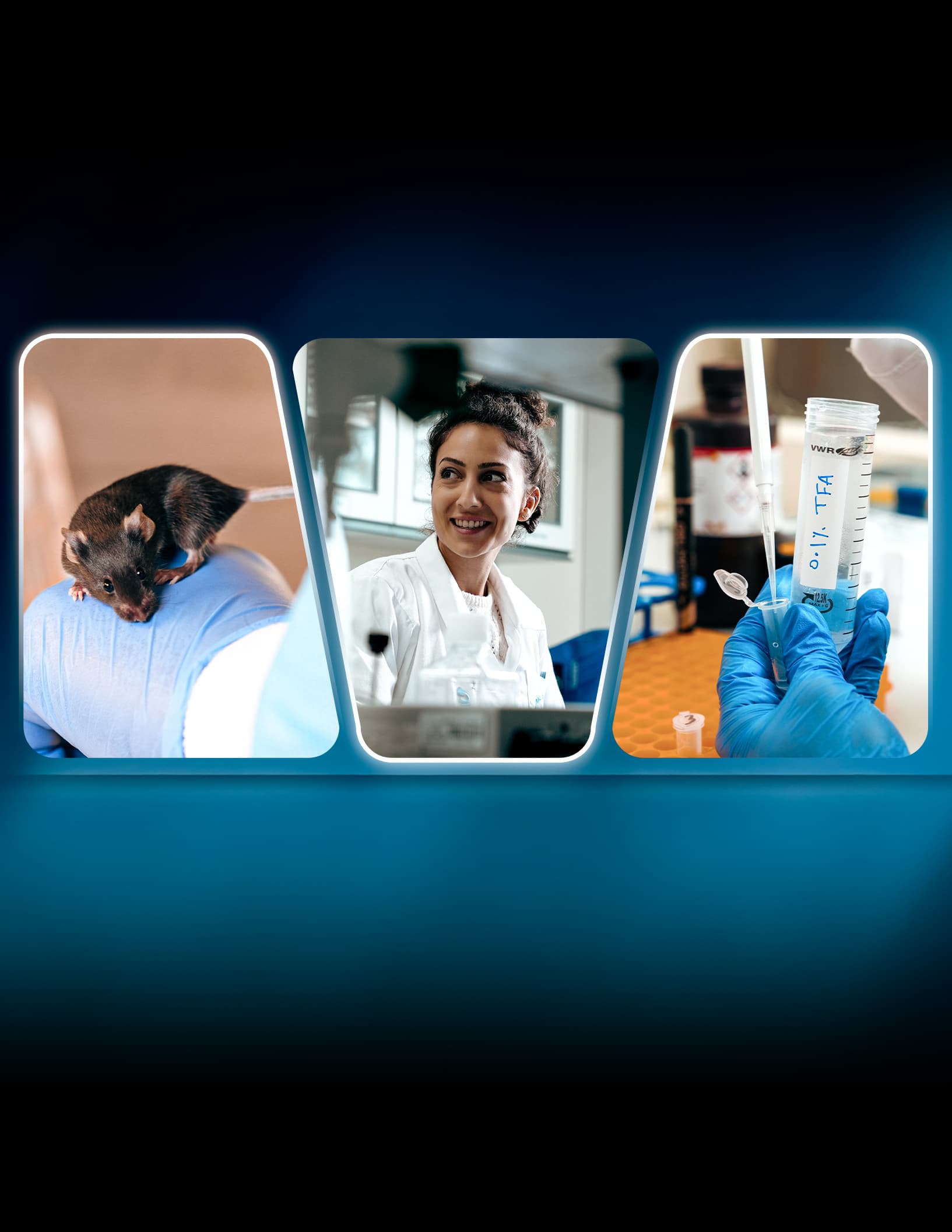About
Research
Collaborations
Publications
Our team
About

The Aviation Center of Excellence (ACoE) was established at the University of Sharjah (UoS) in 2019 in collaboration with the General Civil Aviation Authority (GCAA), which is the regulatory body responsible for overseeing and regulating all aviation-related activities in the UAE. It falls under the GCAA Professorship Chair Strategy since June 2022, which was signed between UoS and GCAA, by GCAA’s Director General, H.E. Saif Muhammad Al Suwaidi, and the previous University Chancellor, Professor Hamid M.K. Al Naimiy, in the esteemed presence of His Highness Sheikh Sultan bin Ahmed Al Qasimi, Deputy Ruler of the Emirate of Sharjah and President of the University of Sharjah.
The Center is dedicated to developing innovative open-source solutions in the aviation industry as well as making contributions to the field through research publications. It focuses on a wide range of research directions, including robotic process automation (RPA), artificial intelligence (AI), drone forensics and security, UAV systems research and development (R&D), as well as other research in aviation, while constantly exploring newer research directions to keep up with technological advancements and their beneficial contributions to the aviation field.
The ACoE is equipped with state-of-the-art technology and a skilled workforce. It has actively engaged both graduate and undergraduate students, fostering a robust research environment. Furthermore, the ACoE has established and nurtured connections and collaborations with various industrial and educational entities across the UAE and internationally.
The ACoE collaborates closely with the OpenUAE Research and Development (R&D) Group at the University of Sharjah under the leadership of Dr. Manar and Professor Qassim. We share researchers, resources, and funding across various projects.
Objectives of the Aviation Center of Excellence
The objectives of the Aviation Center of Excellence are to:
- Contribute to the research field in aviation: The Center is committed to conducting impactful research and disseminating its findings to enhance the aviation field's knowledge base through research publications in the form of conference and journal papers. This includes exploring state-of-the-art advancements, developing innovative solutions, and contributing to the evolution of standards and best practices in the field.
- Foster technological advancement and innovation in aviation: The primary aim of the Center is to foster innovation and drive the advancement of cutting-edge technology within the aviation industry. It seeks to create solutions that will contribute to the improvement of aviation-related services in the UAE benefiting not only aviation professionals but also the general public.
- Promote senior projects and theses in the field of aviation within the academic community: The Center provides support and mentorship to undergraduate, postgraduate, and doctoral students at the University of Sharjah with their senior projects and theses. It enables students to research, develop and publish aviation-related solutions and corresponding papers which enriches their academic profile.
- Collaborate with external aviation entities: The Center has also explored collaboration opportunities with national and international aviation entities for exchanging ideas to enrich the research and development of solutions in the aviation field through their support. It is also involved in talks with the GCAA and other external organizations to establish aviation-related degrees at the University as the need for such programs is deemed necessary with the evolving needs of the aviation industry.
- Enrich the aviation workforce: It offers research opportunities, hands-on experience, and access to UAV and aviation technology to students and researchers at different educational levels. This provides an opportunity to enrich aviation knowledge in individuals and equip them with practical skills to prepare them for prospective careers in the aviation sector which is crucial as per the demands in the aviation field.
- Align with the UAE’s vision in aviation: Through the promotion of innovation, driving advancements in technology, and disseminating knowledge, the Center actively contributes to boosting the UAE’s position in cutting-edge aviation research, development, and the establishment of industry standards. This mission seamlessly aligns with the nation's aviation objectives and contributes to enhancing aviation operations in the industry.
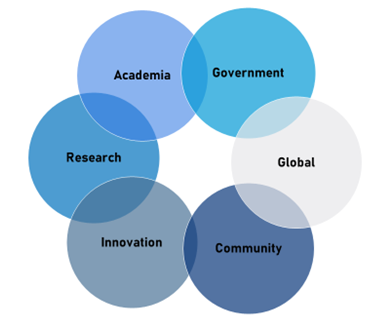
The Center continues to foster research, innovation, and collaboration in the aviation industry. Through their dedication and expertise, they strive to create a secure and technologically advanced future for aviation.
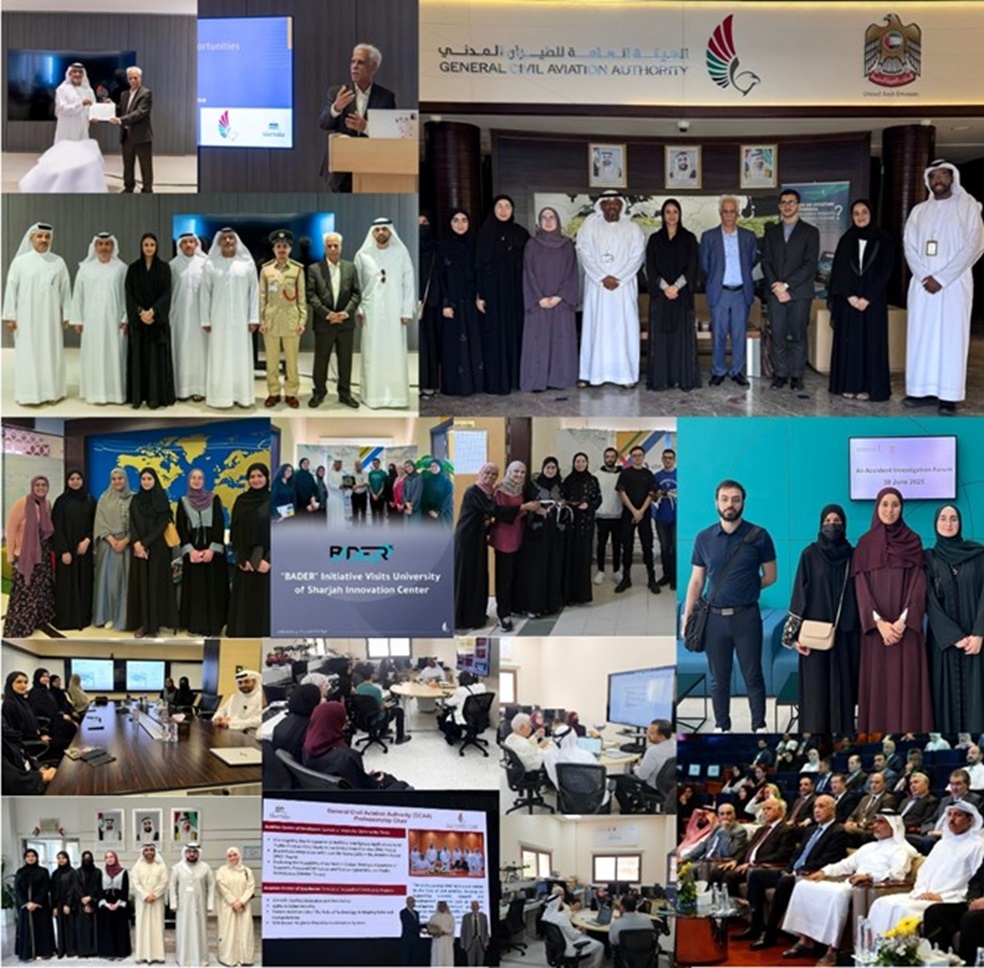
Research
Research at the Aviation Center of Excellence (ACoE)
The Aviation Center of Excellence (ACoE) is dedicated to conducting cutting-edge research and development in the aviation field using advanced technologies. Our research aims to drive innovation, enhance aviation safety, and contribute to the UAE’s leadership in air transport modernization.
Core Research Directions
- Future Jobs in the Aviation Industry: Explores how automation and AI are reshaping roles and creating new opportunities.
- Large Language Models in Cybersecurity: Investigates LLM integration to enhance security and threat response.
- AI Agents in Cybersecurity and Procurement: Deployment of autonomous agents to optimize operations.
- Aviation Signals Analysis: Using SDR to monitor and analyze wireless aviation signals.
- FDR and CVR Data Analysis: Decoding flight data to support accident investigations and predictive analytics.
- Drone-Based Photogrammetry: Precise reconstruction of accident sites using UAVs and 3D mapping.
- AI and Robotic Process Automation (RPA): Automating repetitive tasks and optimizing decision-making processes.
- Digital Forensics and Security: Developing tools for drone data forensic analysis and security protocols.
Ongoing Research and Projects (2024–2025)
- Multimodal AI Fusion: Developing a unified system for predictive safety analytics using CVR and FDR data.
- CVR Audio Analysis: Building tools for multi-channel voice separation, transcription, and stress analysis.
- Raw FDR Data Decoding: Creating frameworks to transform binary data into engineering parameters for anomaly detection.
- SDR-Based Monitoring: Detecting interference and anomalies in aviation frequencies using distributed SDR systems.
- Drone-Based Site Investigation: Utilizing UAVs with 3D scanners for safe and accurate investigation of crash sites.
- Quantum Radar Studies: Advancing understanding of quantum machine learning for signal detection.
- Finance Dunning Automation: Automating overdue payment notification systems using predefined business rules.
Research Vision
The ACoE continues to foster innovation, collaboration, and knowledge dissemination. By integrating AI, automation, and cybersecurity, the center supports a safer, smarter, and more sustainable aviation future.
Research Highlights
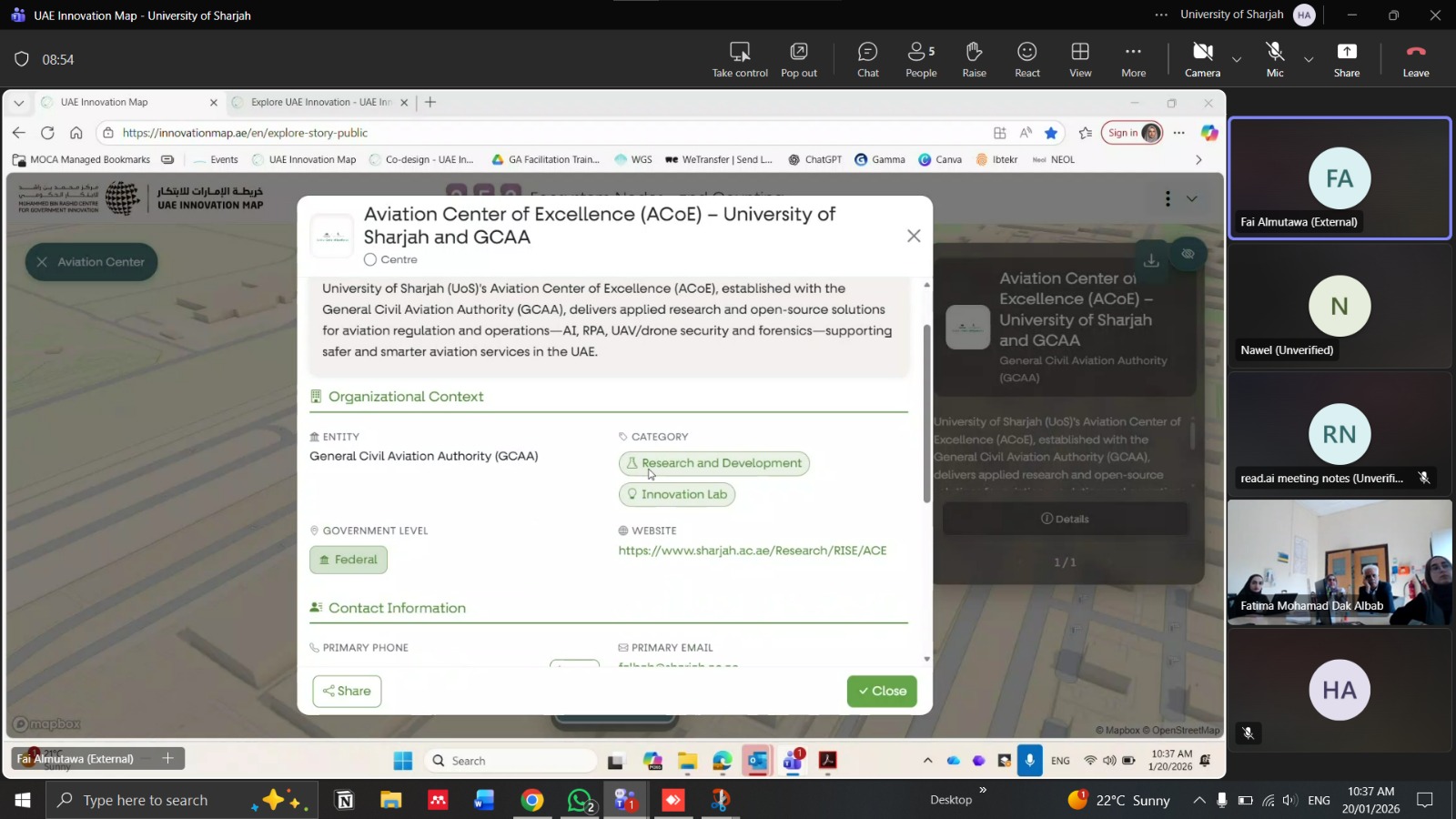
Strategic Meeting with UAE Innovation Map: ACoE leadership met to align research initiatives with national innovation objectives.
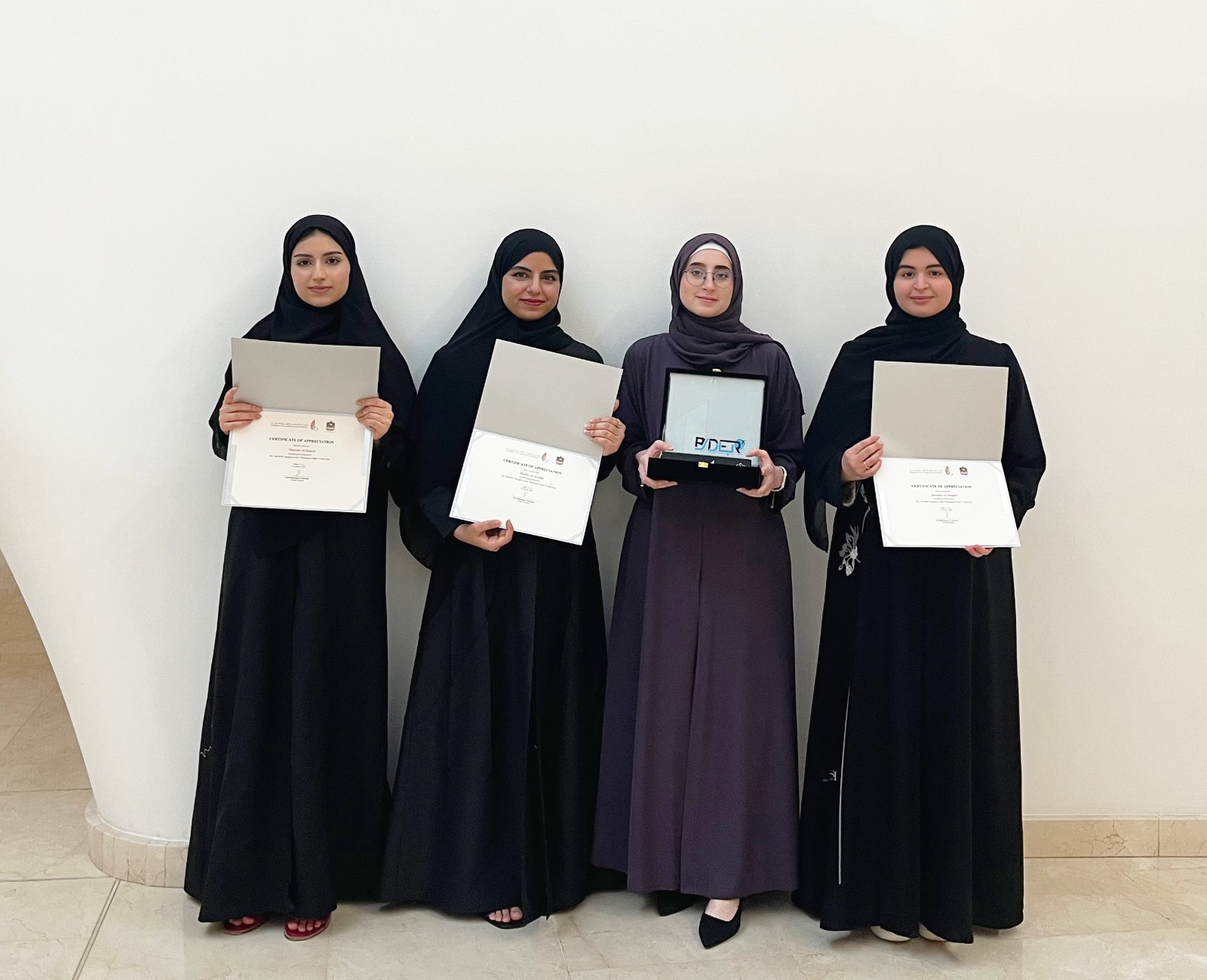
BADER Initiative at Career Fair: Participation in the Promising Future Aviation Career Fair to showcase research-driven career paths.
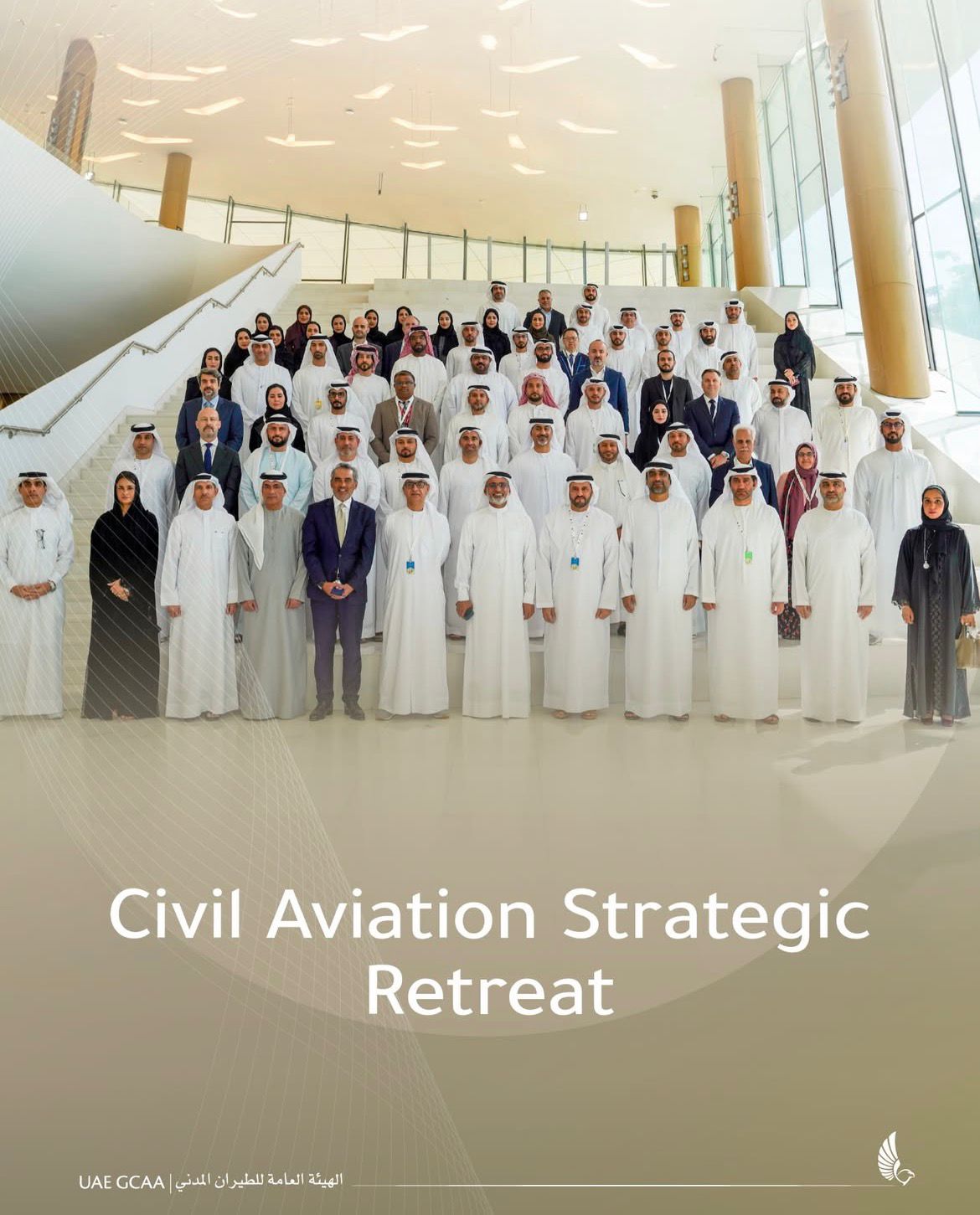
Strategic Civil Aviation Workshop 2031: Participation in GCAA workshop to discuss future innovation and research priorities.
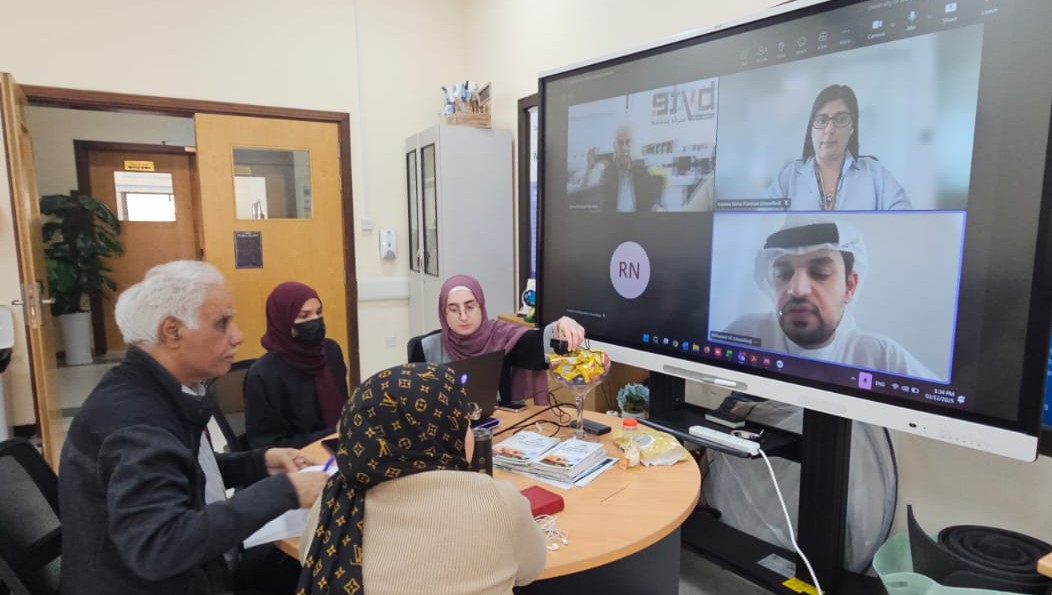
Coordination Meeting with Etihad: Advancing discussions on collaborative research initiatives and project alignment.
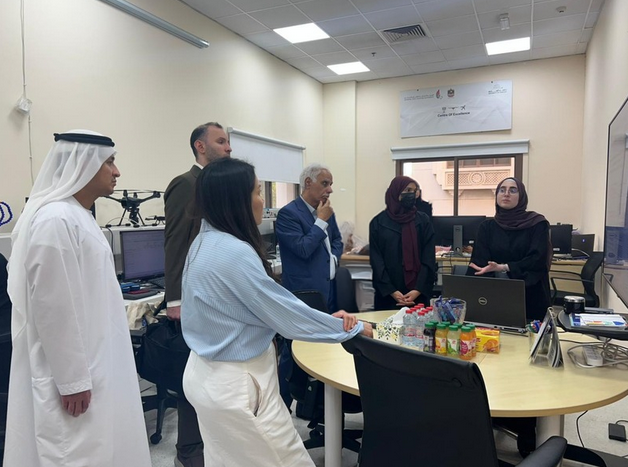
Ministry of Education Visit: Delegation review of ACoE activities, facilities, and ongoing research projects.
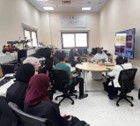
GCAA Customer Experience Visit: Exploring collaboration opportunities and reviewing aviation research initiatives.
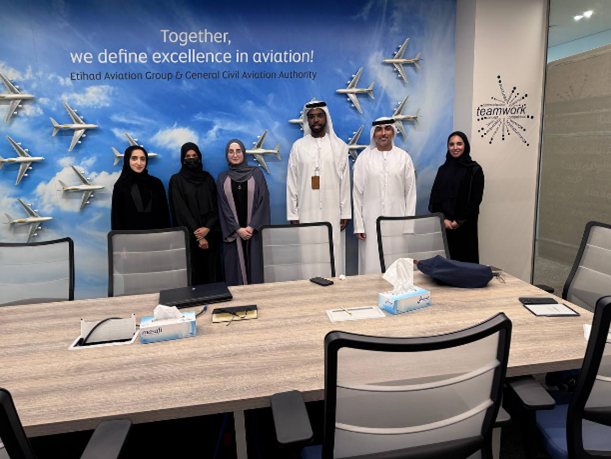
GCAA Air Accident Meeting: UoS team meeting with GCAA to discuss FDR/CVR project progress.
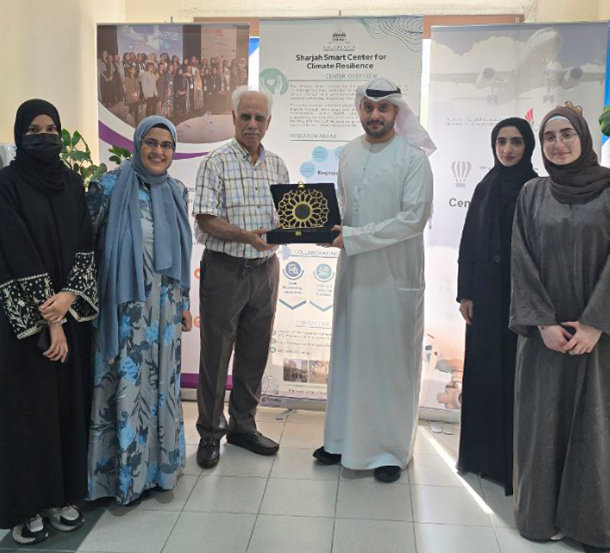
Corporate Knowledge Section Visit: GCAA team visited UoS to review research achievements and future plans.

GCAA BADER Campaign: Initiative awareness campaign visit to ACoE for project selection.
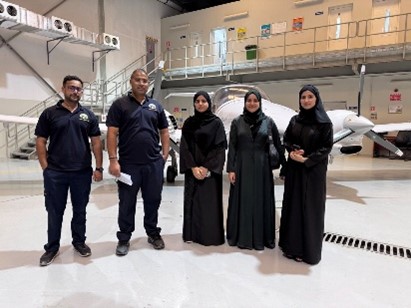
Fujairah Aviation Academy Visit: Collaborative exploration of specialized training and aviation research.
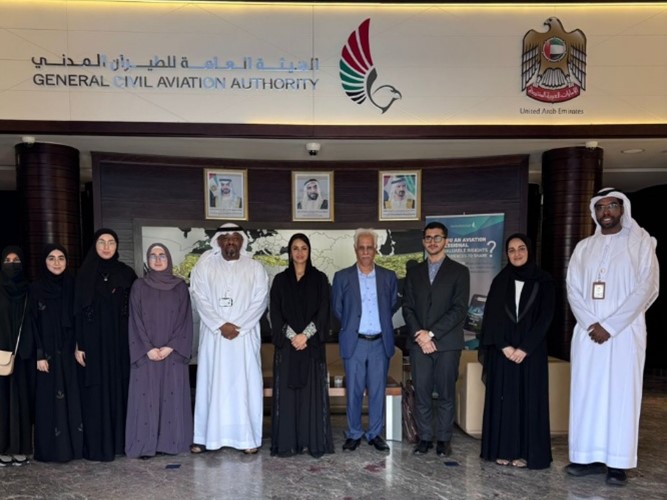
UoS Visit to GCAA: Detailed discussion regarding Flight Data Recorder and Cockpit Voice Recorder projects.
.jpg)
GCAA BADER Initiative: Awareness campaign visit to the Aviation Center of Excellence.
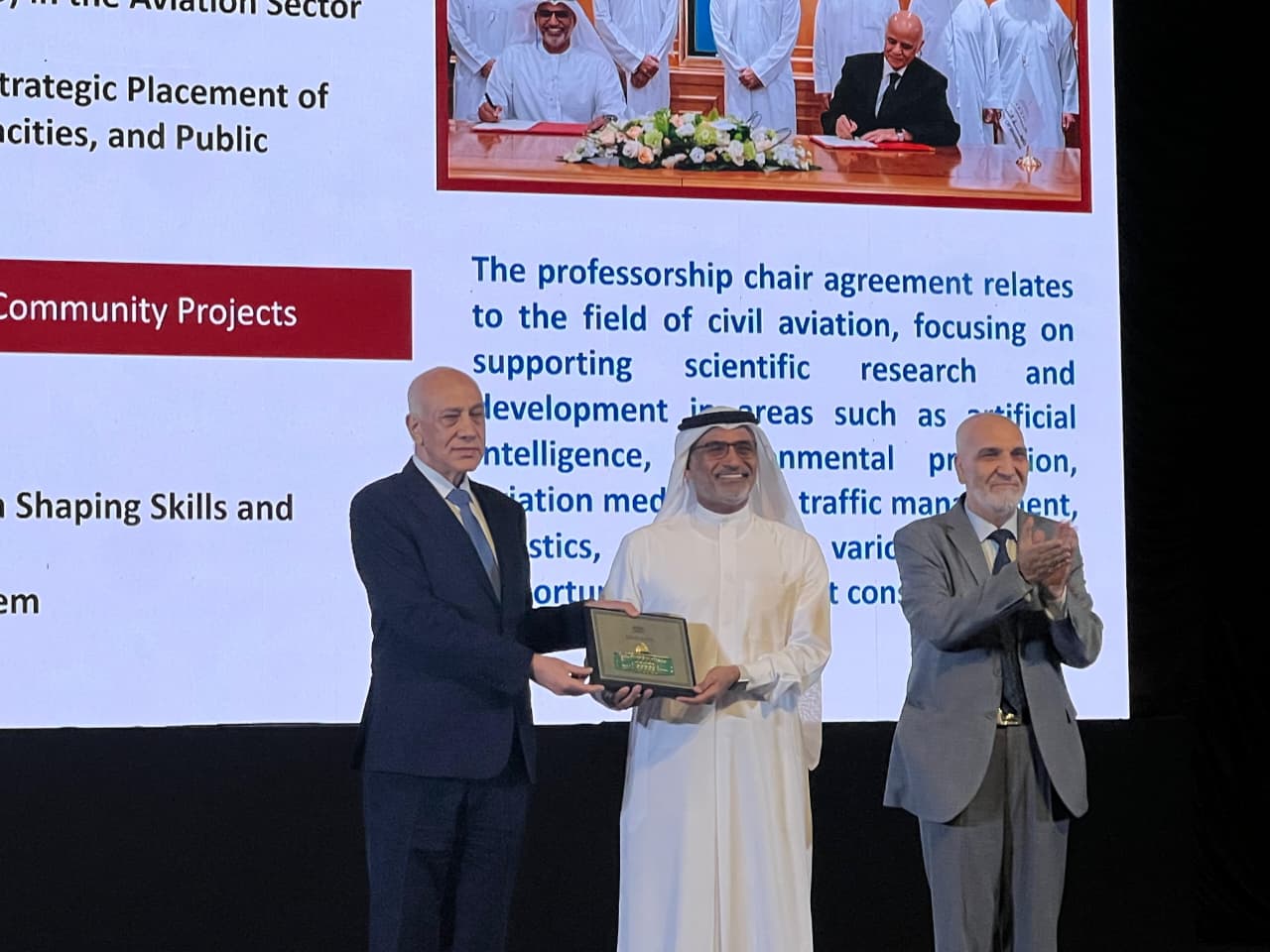
17th Scientific Research Forum: Participation in the annual forum and honoring GCAA partnerships.
.jpg)
Dunning RPA Project: GCAA visit to UoS to discuss robotic process automation for finance systems.
.jpg)
GCAA AI Workshop: Prof Qassim participating and contributing to the AI strategy workshop.

Python & Raspberry Pi Workshop: Edumarket session focused on hardware integration for UAVs.
.jpg)
Drone Assembly Workshop: Practical calibration and assembly training held by Edumarket.
.png)
GCAA Dubai Office Visit: Discussion regarding senior project topics and industrial mentoring.

ICICT 2025 Presentation: Comparative Analysis of Photogrammetry Software Tools for accident reconstruction.
.png)
Abu Dhabi Center Discussion: Planning senior project topics with GCAA experts.
Collaboration
The ACoE actively pursues collaborations with national, regional, and international aviation-related entities that include, but are not limited to:
- General Civil Aviation Authority: With the research center being affiliated with GCAA, most of our services are developed for their use. Notably, our RPA automated solutions have been successfully integrated into their operations.
- Aviation Australia: Ongoing discussions with Aviation Australia, a world-class registered training organisation, aim to foster collaboration on projects and the establishment of aviation-related majors at the university.
- Matesol: A project for delivering medical supplies through efficient and smart long-range drones in Dubai, along with a blockchain-powered application to manage operations and keep track of every transaction, was developed through this collaboration.
- Dubai Police: In 2021, H.H Sheikh Mohammed Bin Rashid launched the 'Drone Boxes' project to reduce Dubai Police's response time from 4.4 minutes to 1 minute. The project developed through this collaboration utilizes a hybrid solution integrating AI algorithms with the ArcGIS environment to efficiently localize drone boxes across Dubai.
